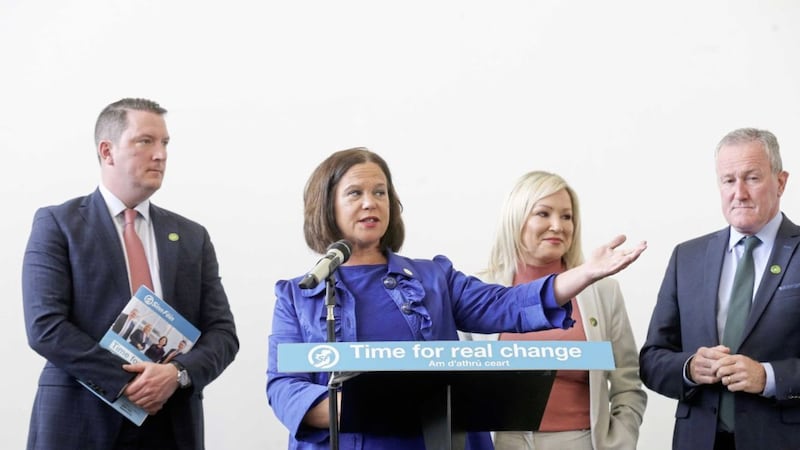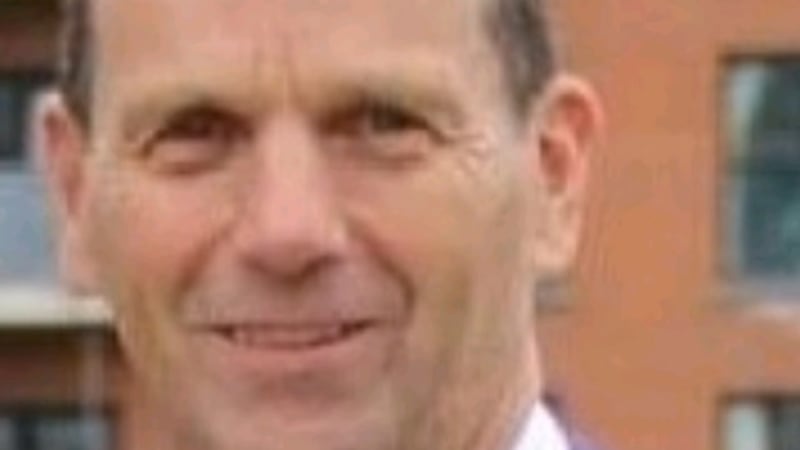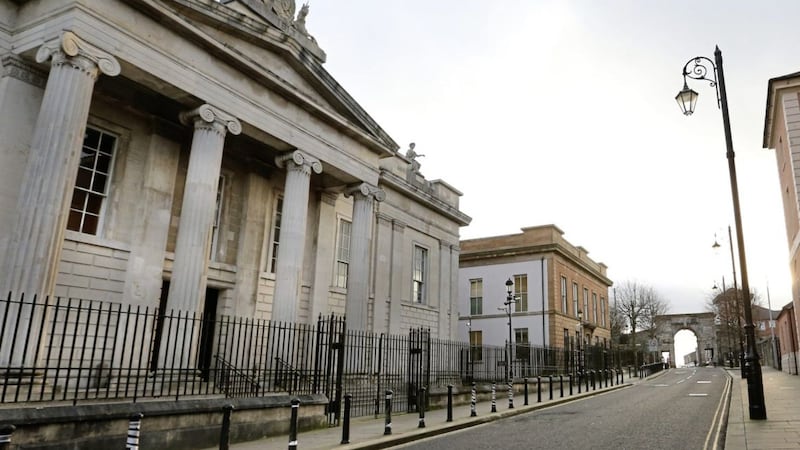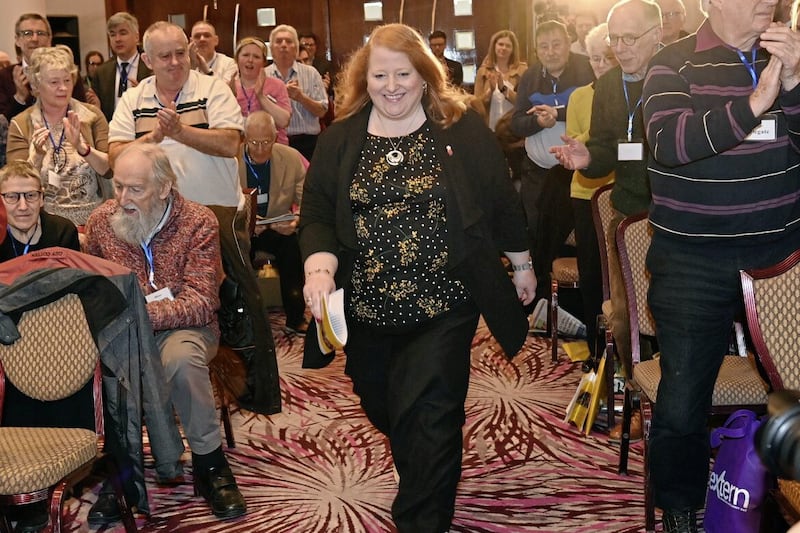SINN Féin has prioritised tackling the cost of living crisis in the election campaign, while focusing on establishing a working executive in the days immediately after next week's Stormont poll.
The party's launched its assembly election manifesto yesterday in Belfast, setting out its plan for Irish unity. However, northern leader Michelle O'Neill said it was the current impact of rising prices that was of most concern to voters she'd spoken to in recent days.
Among the mitigations Sinn Féin proposes is a one-off £230 payment to every household in the north, costed at £177m. The party also advocates an additional £100 for those on benefits to help with energy costs and a £9m fund to provide "quick and short-term financial assistance in a crisis".
The emergency spending would be paid for with the £334m of Barnet consequentials that is sitting in Stormont's coffers but has remained unallocated due to the absence of an executive.
The money would also cover £70m worth of "interim financial support" for the agrifood sector to help with the cost of feed, fuel and fertiliser, the party said, alongside an extra month's rates holiday for businesses, costing £33m.
"I have been on the doors with our candidates listening to people’s concerns," Ms O'Neill said. "It is rising living costs and fuel and electricity price hikes which are to the forefront of their minds, and which is crippling household budgets."
Insisting there should be "no delays and no prevaricating" in the aftermath of the May 5 election, the party's manifesto calls for a new executive to be formed immediately to "deliver the investment in health and to implement the measures needed to tackle the rising costs of living".
Sinn Féin wants to put an additional £1bn into the health service over the next two-to-three years with the main aim of tackling hospital waiting lists.
The party also plans to "recruit and retain more nurses, doctors and health and social care workers", while broadening co-operation in border areas.
The economy too features prominently in the manifesto, much of it implicitly critical of the DUP, which has held the portfolio consistently since St Andrews a decade-and-a-half ago. However, when asked by The Irish News if the economy portfolio was a priority for the party in the next executive, Finance Minister Conor Murphy was non-committal.
Sinn Féin says it will deliver a new economic strategy that "maximises dual access to the British and EU markets", ensure Invest NI "prioritises regional balance", and seek greater devolution of fiscal powers.
On border poll preparations, the party argues for "working with the Irish government to establish a citizens' assembly" on the island's constitutional future and securing a date from the two governments for a vote on unity.
Party leader Mary Lou McDonald indicated that she remained hopeful that there'd be a referendum before the end of the decade, while rejecting unionist suggestions that such a poll would be divisive.
"We are Irish republicans, people know our position in respect of Irish reunification and referendums," she said.
"There's no secret about that, but we know that you can push for that, plan for that, but also work very constructively and not just work constructively, but deliver for people and everybody in the here and now – and there has to be a balance struck between those two things and our campaign is fashioned to recognise those bread and butter, lived realities of people."
She said preparing for a border poll did not mean "that you suspend everything else".
"Everybody here will tell you out on the doors the question for people is how do I make my electricity bill, how do I ensure that we can just keep things going and in many, many households keep our heads above water, and that includes working families," she said.








